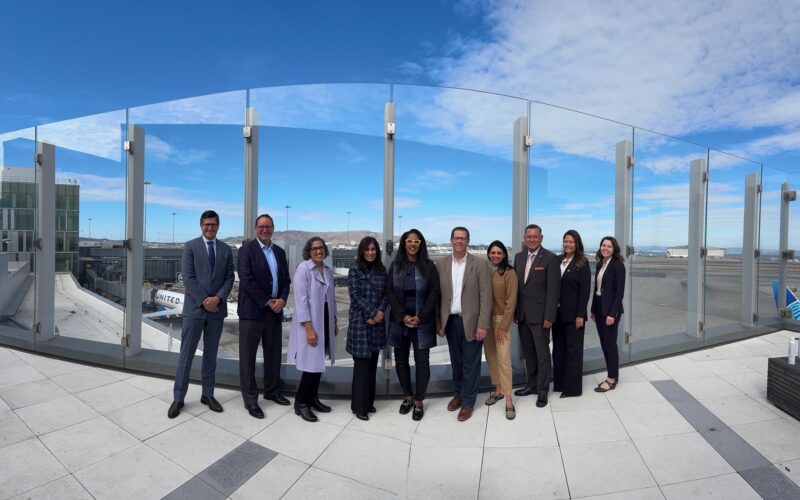The California Air Resources Board (CARB) and Airlines for America (A4A), an airlines advocacy body, have announced an agreement to significantly increase the availability of sustainable aviation fuel (SAF) for flights within California. By 2035, the partnership aims to reach 200 million gallons of SAF annually, meeting approximately 40% of the state’s intrastate travel demand and representing over a tenfold increase from current levels.
SAF, a low-carbon alternative to traditional jet fuel made from renewable biomass or waste, currently makes up just 0.1% of global aviation fuel. One priority is to make SAF cost-competitive with petroleum-based fuel.
“California and the aviation industry are joining forces to tackle emissions head-on,” said Governor Gavin Newsom, calling the agreement “a major step forward in our work to cut pollution.” A4A, representing major carriers like American, Delta, and United, emphasised that the collaboration exemplifies the critical partnership between government and private sectors to meet ambitious climate targets.
“A4A is pleased to launch a partnership with CARB focused on protecting the environment, reducing emissions, and increasing the use of SAF in California and across the country,” said Kevin Welsh, Vice President of Environmental Affairs and Chief Sustainability Officer at Airlines for America.
He added, “This partnership reflects the type of collaboration between government and the private sector that is necessary to achieve ambitious climate goals, and the agreement announced today reflects the strength of our commitment to a cleaner, more sustainable future for air travel. We’re excited to work with CARB and other SAF stakeholders to further our industry’s efforts to achieve net-zero carbon emissions by 2050.”
The move aligns with federal goals set by the Biden administration, which targets net-zero greenhouse gas emissions in US aviation by 2050 and a 20% reduction by 2030. The Energy Department recently approved nearly $3 billion in conditional loans for SAF projects, anticipated to add around 315 million gallons of SAF production capacity annually. The White House’s vision includes meeting all US aviation fuel demand with SAF by 2050, projected at 35 billion gallons yearly.
CARB Chair Liane Randolph noted that the agreement focuses on creating incentives, streamlining permitting, and overcoming challenges to accelerate SAF deployment. A dedicated SAF working group will monitor progress and tackle barriers, and a public website will provide updates on SAF and conventional jet fuel availability in California.















